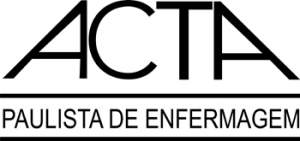Romanniny Hévillyn Silva Costa Almino, nurse, Universidade Federal do Rio Grande do Norte, Natal, Brazil.
Nanete Caroline da Costa Prado, nurse, Universidade Federal do Rio Grande do Norte, Natal, Brazil.
Richardson Augusto Rosendo da Silva, professor, Universidade Federal do Rio Grande do Norte, Natal, Brazil.
 In view of the high demand in mental health of health professionals resulting from psychological consequences caused by the new coronavirus and the considerably high potential for the emergence of psychological stress, nurse researchers at the Universidade Federal do Rio Grande do Norte conducted a study aimed at identifying occupational stressors and stress coping strategies.
In view of the high demand in mental health of health professionals resulting from psychological consequences caused by the new coronavirus and the considerably high potential for the emergence of psychological stress, nurse researchers at the Universidade Federal do Rio Grande do Norte conducted a study aimed at identifying occupational stressors and stress coping strategies.
The Betty Neuman Systems Model was adopted as theoretical support in the study. According to Neuman, individuals are compared to an open system to interactions with the environment where they are inserted, and constantly seek physical and mental stability (NEUMAN; FAWCETT, 2011).
The article titled Occupational stress in the context of COVID-19: analysis based on Neuman’s theory was published in the journal Acta Paulista de Enfermagem. It is a quantitative study in which 27 primary studies related to stressors and/or interventions focused on preventing occupational stress in health professionals in the face of the COVID-19 pandemic were analyzed. The bibliographic survey was carried out in April 2021 in recognized databases, such as The Cochrane Library, Scopus and Web of Science.
The study results demonstrated that intrapersonal (related to the individual), interpersonal (related to individuals and the environment close to them) and extrapersonal (external forces outside the limits of individuals) factors were responsible for occupational stress in health professionals in the context of the COVID-19 pandemic.

Image: Freepik
The following intrapersonal stressors were observed: fear of contagion and limited knowledge of the disease; interpersonal stressors: change in social relationships and fear of transmission to family members, experiencing the illness of colleagues and family members and loss of loved ones; and extrapersonal stressors: inappropriate health system and work overload.
Prevention strategies at the primary (promotion of workers’ health, mainly focused on the collective scope), secondary (early detection of occupational stress symptoms) and tertiary (rehabilitation of professionals with occupational stress) levels for coping with occupational stress focused on health professionals working on the frontline of combating COVID-19 were highlighted in the study.
The study is important because it identifies strategies aimed at minimizing the occurrence of occupational stress based on knowledge of the factors that trigger this event among health professionals .
Health professionals certainly play a fundamental role in the health care of patients affected by COVID-19, but we cannot ignore that constant stress can trigger psychological problems such as anxiety, fear, panic attacks and post-traumatic symptoms.
The result of the study also brings new challenges, as the problems affecting the category with regard to the mental health of these workers arouse restless discussions about institutional, political and social responsibilities for the mental health care of health professionals.
Read more
NEUMAN B., FAWCETT, J. B. and FAWCETT, J. The Neuman Systems Model. 5a ed. United States: Prentice Hall, 2011.
To read the article, access
ALMINO, R.H.S.C., et al. Occupational stress in the context of COVID-19: analysis based on Neuman’s theory. Acta Paulista Enfermagem [online]. 2021, vol. 34, eAPE002655 [viewed 22 December 2021]. https://doi.org/10.37689/acta-ape/2021AR02655. Available from: https://www.scielo.br/j/ape/a/wHY9NkrKDbN9V7QgK7JFSvH/?lang=en
How to cite this post [ISO 690/2010]:





Últimos comentários